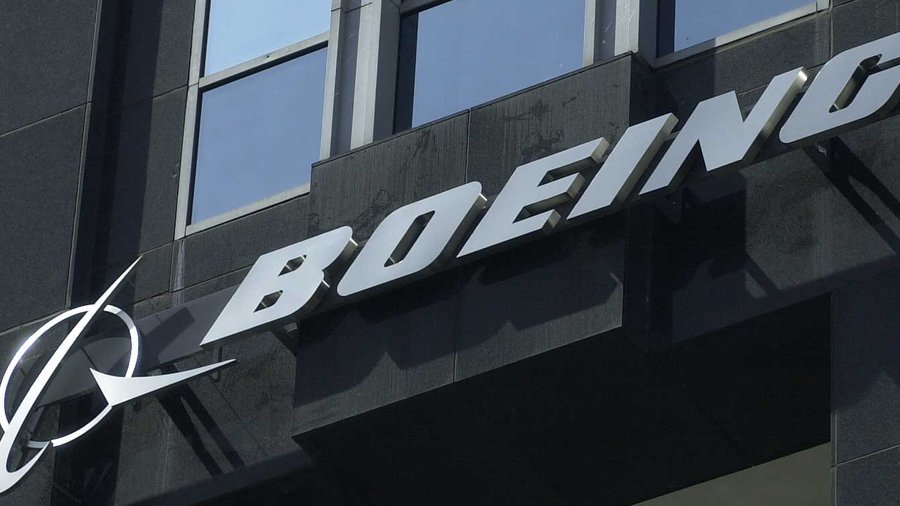Boeing will end all commercial airplane engineering work and close its sprawling advanced developmental composite center on East Marginal Way in Tukwila this year as part of a company plan to cut 30% of its real estate footprint.
More than two dozen Boeing Commercial Airplanes engineers who currently work at the facility will be relocated to others owned and operated by the jet maker by the end of 2021, Boeing spokesman Bernard Choi said.
"We will manage the transition of work between now and the end of 2021. There will be some non-Boeing Commercial Airplanes work continuing at the building," Choi said.
Boeing officials confirmed the closure decision, first reported by the Seattle Times on Tuesday, but the jet maker is unlikely to sell the building or land anytime soon.
The Business Journal has learned the sprawling site where the building is located is contaminated after years of secret military projects and subject to a clean-up program effort being supervised by the Washington State Department of Ecology.
The ADC (advanced developmental composite) center, which Boeing has occupied since 1956, is where Boeing Defense for decades developed parts for the B-2 bomber, fighter jets and Bomarc missile components. It also performed secret research there that was later used to develop the fuel-efficient composite wings for its 787 Dreamliner widebody jet.
"Boeing used chemicals to manufacture airplanes and missiles. They also generated dangerous wastes from manufacturing processes such as electroplating, chemical milling, conversion coating, cleaning parts and photographic processing. As a result of past operations, chemicals contaminated soil and groundwater at the site," a Department of Ecology report states.
Boeing itself began clean-up efforts at the site years ago, work that has included removing 1,400 tons of contaminated soil. A 419-page interim action plan for the clean up of the site was proposed in May 2019. The public is invited to participate.
Choi said that when Boeing first launched the advanced development composite center, the Chicago-based jet maker didn’t have facilities like its 7-year-old Composites Wing Center in Everett, which currently sits half empty. Composites work will still be done, Choi said, at other Boeing facilities.
Boeing Chief Financial Officer Greg Smith revealed the aircraft manufacturing company's plan to slash its real estate footprint by 30% last fall and the ADC closure is just the latest piece of company real estate to be affected.
Last fall, Smith said Boeing Commercial Airplanes headquarters in Renton will be sold as part of that effort.
Boeing has also sold off a maintenance and repair facility in Australia, and it in December confirmed plans to consolidate workers in India in multiple office buildings into one building.
Boeing adopted the real estate footprint reduction plan as it endured the 737 Max crisis and then a global pandemic. Both have crushed Boeing airplane sales and the aviation sector. Dozens of Boeing airline customers have canceled or deferred orders because of the two factors.
Choi said Boeing's closing of the ADC center shows the company is determined to "take comprehensive action across the enterprise" to address new economic realities.
"This is one of several steps we’re taking to streamline our operations and make more efficient use of our facility space," Choi added.
Still, the news of another Boeing facility closure is stirring concerns about Boeing's commitment to the Puget Sound region after the company made massive layoffs in 2020 and started selling off land here even before its announcement.
The Business Journal recently tallied Boeing land holdings in King and Snohomish counties, pegging their combined value at $4 billion, but the holdings, including 131 different parcels in King County, are declining.
However, a Business Journal analysis of public records and reports found that the jet maker has sold $239 million in vacant property and office buildings in the region over the past several years.
In January of 2020, for example, Boeing sold 54 acres in Kent to the industrial arm of Blackstone for $60 million. Link Industrial Properties, Blackstone's U.S. industrial arm, and Panattoni are planning a business park featuring 808,000 square feet on the property in the Pacific Gateway area.
A King County Assessor’s report obtained by the Business Journal revealed that Kent sale was one of several.
Boeing has significantly downsized in Kent over the past decade, with more than 662,000 square feet of space demolished and the land sold for redevelopment as prices have soared in the region.





